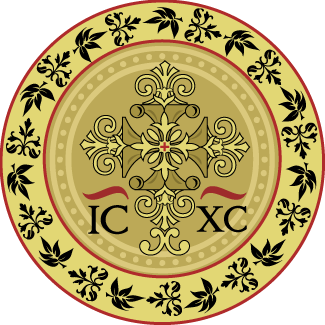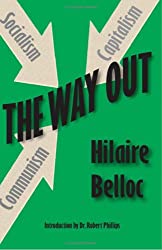
2023 Preface: Looking Back to 2009:
Dear Lector,
Below you will find the first of a series of four posts from 2009. These concern my first encounter, fourteen years ago, with Valentin Tomberg’s astonishing works on jurisprudence, the first of which has (at last!) been made widely available in English as The Art of the Good (and which I have reviewed here).
It may help to clarify things in this four part series, if we point out that 1944 book’s original title was Degeneration and Regeneration of Jurisprudence—and that it signalled an astonishing break from Tomberg’s Anthroposophical past.
It also seems helpful to list this four-part 2009 series with links—as well as two much more recent related posts—as this may further serve to clarify matters, matters which are not only extraordinarily important for us at this website, but we believe for the very future of the West.
Thus, we list:
First Part: The Moral Oxygen of Valentin Tomberg
Second Part: Stunning New Vistas—Valentin Tomberg’s Catholic Jurisprudence
Third Part: One Must Have Courage to Recognise the Fatal Tree
Fourth Part: Tomberg turns to the LIFE of the Church …
Related Entries:
We pray the various Tomberg videos featured on all these pages may also help to illumine these extraordinary things. And now back to my former self, writing in 2009—Roger Buck
2009—Tomberg’s Catholic Jurisprudence
I have recently indicated my profound, immeasurable gratitude for the possibility of reading Valentin Tomberg’s two Catholic studies on Jurisprudence in English. I feel I should extend this same gratitude to the translator, Gabriele R. Jabouri, whose work of translation for the Anglophone world of course, I cannot help but also judge of profound and immeasurable significance …
Today, just a few indications as to why I think this. These Catholic writings on jurisprudence really cover so much ground. Although the title of the first volume Degeneration and Regeneration of Jurisprudence is perhaps the more indicative of the content of both works, it becomes clear to the attentive reader that the author, in the horror of World War II, is seeking nothing less than the regeneration of world civilisation.
For as he makes endeavours to make clear, these two things – healing of jurisprudence and healing of civilisation – are mutually interdependent:
The task of the administration of justice is therefore the realisation of a just legal system i.e. the liberation of jurisprudence and administration of justice from their national limitations and dependencies, as well as every favouritism of one class at the expense of another, and the continuously increasing progressive protection and promotion of such spiritual values which unite humanity via the path of freedom and freedom of beliefs into a community with a common conception of the world and the ideal.
And how is such an apparently utopian ideal to be realised? To understand Tomberg’s answer to that question, these books – from his doctoral and post-doctoral theses – need to be fathomed.
Here in this internet review we can hardly do that – one can only indicate that for Tomberg it a matter of:
A total question of human culture – and one has to give a total answer i.e. an answer which considers the totality of the question and points out a legal system for humanity suitable to save and preserve humanity´s culture and to enable its future development for it is in mortal peril.
And that this “total answer” involves rescuing all of jurisprudence and indeed all of civilisation from a current of degeneration over centuries which resulted in splitting.
This is to say both a splitting of the phenomenal from the noumenal and a concomitant splitting of related fields into a denying specialisation, which Tomberg argues can only herald degeneration and decay:
“Jurisprudence has lost a great deal by falling prey to the guidance of the separating current; first it was separated from religion, then from morality and philosophy. Its individual branches (private law, criminal law, administrative law , state law, international law, canon law etc.) are also increasingly about to become separate from one another.
All this despite the fact that jurisprudence owes the nature of its concepts to religion, the methods to work with them to idealistic philosophy and the application of the concepts themselves to a practical development that is over two and a half thousand years old. And for over two thousand years of this time, it was part of an organic whole.
What has been gained by adopting this striving towards separation, towards parting, as a guiding current?
Loss of the ideals, loss of the method of moral, basic thinking, mechanisation of concepts – and as a consequence, a lack of true seriousness, superficiality: These are the fruits of separation from the ground which brought forth jurisprudence, and from which it took its life force and substance. It must continue to take them from there, so as not to wither and die.
It is thus argued as necessary to work as Tomberg endeavours:
The way of union of all which belongs together according to its nature. We will treat law as inseperable from justice; justice in its turn as an inseperable part of morality; and morality as united with its ideals and tasks, i.e. religion. (Bold emphasis above belongs to the author, italics are my own).
Now to do all this any kind of justice, Tomberg’s work needs to be – again I say – fathomed. But in such fathoming, one may discover a kind of working here of exceptional rarity: a kind of moral argument, filled with respect for the freedom of the reader (and thus free of propaganda and manipulation) which nonetheless involves an effort towards encouraging a raising of consciousness in the reader.
(Or at least, I myself, must certainly endeavour to raise my own level of consciousness to ascend the heights contained within these works!) leading to an appreciation of stunning new vistas …
At least, such indicates my own experience. Stunning new vistas have opened up for me …
Some of these involve the moral obligation to protect spiritual culture and what that obligation necessarily entails.
Others involve the nature of the Catholic Church to which Valentin Tomberg converted as a result of the moral considerations and processes that are testified to in these writings. These writings which, again, are all to do with preserving humanity’s culture from “mortal peril” …
To Be Continued . . .
For Easy Navigation
First Part: The Moral Oxygen of Valentin Tomberg
Second Part: Stunning New Vistas—Valentin Tomberg’s Catholic Jurisprudence
Third Part: One Must Have Courage to Recognise the Fatal Tree
Fourth Part: Tomberg turns to the LIFE of the Church …
Related Entries:

Foreword for Monarchy by Roger Buck
Buying Books at Amazon Through These Links Gives Us a Commission. This Supports Our Apostolate. Thank You if You Can Help Us Like This!









Comments
comments are currently closed
11 responses to “Stunning New Vistas—Valentin Tomberg’s Catholic Jurisprudence”
Dear Roger,
I was wondering if you would post a pdf copy of “Degeneration and Regeneration of Jurisprudence” to your website, or post it to Scribd (http://www.scribd.com/), so that we may all read it.
As an attorney interested in the Natural Law and social regeneration, Tomberg’s work is of great interest.
Thank you,
Michael, it is very gratifying to receive this interest in Valentin Tomberg’s Catholic jurisprudence writings from a member of the legal profession!
And I really wish that I could accede to your request. However, I do not have the right. More on how you could get these is below, however.
First I want to say that your very meaningful interest is prompting me to say outloud something I had originally intended to say privately. That is, I had hoped to contact the translator to not only deeply thank her for the work in making these available in English, which work has made a profound contribution to my life, but also to ask if it is possible to make these works more readily and widely available to English-speaking people..
In this context, I have found myself wondering about Createspace, which is an Amazon company which, with a minimum of expense and hassle – or so it seems to me – will publish on demand books free of charge and immediately list them at Amazon.
I have found myself wondering if both of the law writings might be made available in one volume …
I say “I have found myself wondering” because I know there are other routes which may be more satisfactory for various reasons.
However this looks to me like the most immediate and easy way on to Amazon, from which the book(s) would be able to be found by anyone typing in “Valentin Tomberg”.
The interest from the legal profession you have evidenced Michael … I confess I cannot help but spontaneously praying that this might be a sign for these books being made more widely known and available in our troubled age!
Perhaps if anyone else cares to comment here, that would be of meaning as well.
There I have now spoken publicly what I intended to write privately. In this context, I might observe that I do not even know for certain from whence these came. A dear friend bought them for me.
I emphasise the word “bought”, because I wonder if the translator wants to be recompensed for her effort, which is understandable. For that reason, putting them on the web may not be practical.
Now typing in the words “Degeneration and Regeneration of Jurisprudence” into a search engine will likely lead you to the source. Though I have found no reference for the second longer book “International Law as Humanity´s Law”.
And I want to make a note about the source, for there is irony and possibly even misfortune here. Interested Catholics who might try to find this book will be led, as far as I can see, through a channel that owes much to Anthroposophy.
I feel it needs to be emphasised: these writings are Catholic. There appears in them in fact a decisive rejection of the dream of Anthroposophy that earlier the author had embraced. In fact, it could be argued here I think that of all Valentin Tomberg´s Catholic writings, the break from Anthroposophy is most in evidence here.
Yes Valentin Tomberg is calling for many things in these writings that are very different from Anthroposophy … He has changed. And the evidence of the change is as I have said elsewhere at this site, startling, even shocking.
All of this only strengthens in me the feeling that these writings need to be available outside of a context that could be offputting for many Catholics.
Im closing I want to repeat what I said above, these legal writings have made a profound contribution to my life.
Now that the translator has given this profound gift to me, a life-changing gift I will even say, I pray that others can be so enriched …
Thank you for your response.
About 8 years ago, I had a copy of the thesis in German. Unfortunately, I gave the copy to a translator to review and lost contact with her and no longer have the document. This was before I went to law school, but after I had made my return to Catholicism. My interest in the Meditations began to wane as the Holy Spirit led me deeper into the heart of the Catholic faith (as you know the Meditations are imperfect with regard to orthodoxy), and with that, my interest in following up with getting a translation.
My interest in the thesis has returned because of reading your blog, and from discovering an interview with Tomberg that covered subjects as broad as geo-politics, occultism and the future of the Catholic Faith (unfortunately, I didn’t bookmark that interview and I’ve been trying to relocate it since).
Obviously the best way to gain a greater circulation of these texts is to make them widely available. That said, I’m not clear as to why you can’t do this.
Tomberg’s thesis is in the public domain. There are no barriers to publishing it.
If you, or someone else, hired someone to translate the text, then the question is whether the translator reserved any rights to the translation through a legal instrument. Copyright isn’t automatic.
Now if you are looking to make some money by selling the translation, then this is another matter.
As a traditional Catholic, you might be aware of the New Liturgical Movement. There is a “regeneration” occurring in the area of Sacred Music. This is happening largely through the free distribution of musical texts on the internet which make them widely available. In contrast, the banal music created in the wake of the reforms are bound up in copyright and are owned by non-catholics.
As the new translation of the mass becomes distributed, there are sacred music settings for the new translation being made available immediately for free because the leaders of the New Liturgical Movement are interested in the regeneration of the liturgy. Check these out:
http://corpuschristiwatershed.org/modules/wflinks/viewcat.php?cid=7
http://www.newliturgicalmovement.org/2009/01/copyright-profit-and-liturgical-music.html
So, if the translation is not copyrighted, then why not distribute the texts?
If the translation is copyrighted, then make the German text available and other translations will begin to appear.
If you are looking to make money on the texts, then put them on the Amazon site.
The work should be available to assess its importance for us today, and if it is an important contribution to Catholic legal thought, then it should be brought to the attention of the leading Catholic legal minds of our time.
I could make that happen, because many of them were professors of mine in law school.
Dear Michael,
Thank you for this. It contains many things of real meaning. Including, but not limited to your links!
First, I want to say that I have absolutely no financial interest in these texts at all.
I do not know the people who translated and made them available.
This is why I spoke of having received them through an intermediary who bought them for me and of having planned to contact the translator privately.
I may not have been clear enough.
Hopefully I will be clear now, when I say my prayers I think are exactly the same as yours – I want these out there. And this is why I proposed the Amazon route, myself. At Amazon they would not only be available, they would be able to be discovered in all kinds of fashions … Not simply people typing in “Valentin Tomberg” at Amazon.com – but via other means as well. As I suggested, I think, I feel that they should not be hidden away, as it were, in a place where Catholics are unlikely to find them!
As to copyright, I am very interested to hear of your superior insight in this domain. It may be worth noting however that the two theses – please note two, doctoral and post-doctoral, were also published as books in Germany in the mid 1940’s.
I was under the impression that book publication of that date meant they were unfortunately not in the public domain yet. If this book publication is irrelevant, please let us know! There may well be other writings in the public domain, too …
I cannot at this moment verify if the translation is copyrighted. I imagine that it is. I will be doing more in this regard. This is important and I am very glad to have your voice spoken out loud echoing mine in this regard.
This is but a first, hurried response to you. I am very pressed for time just now. There WILL be a second response coming.
Again thank you very much, unknown friend.
Copyright is indeed automatic and does not require any legal instrument. To the contrary, it requires a legal instrument to relinquish it. That is consonant with justice: a man’s creations belongs to him.
You can tell Michael that is only costs 15 minutes of a lawyer’s billable time to procure copies of both works. If it is so important, then it is worth the price.
Cologero: a warm welcome to this little “forum”.
I am very glad to hear of your interest in these extraordinary works. I will also add here that there is a third extant work. And in size it appears considerably longer, possibly moreso than the first two put together. Something like four to five hundred typewritten pages, perhaps double-spaced.
It was never printed in the original German, a language I can only stumble through, but bizarrely turned up in Spanish via a printing house in Barcelona circa 1960. I lack easy access to further details right now, but will post when I can.
Although as you point out Cologero, the first two works are not difficult to locate, I would very much like a situation where all three could be found in English on Amazon.
I believe they have incredible gifts to offer our very troubled age and deserve a much higher profile.
Dear Roger,
It is a pleasure to read of the impact that Valentin Tomberg’s jurisprudential writings have had upon your life. Full credit is due to my friend and colleague Gabrielle Jabouri who translated these works for me and conveyed the copyright and publishing rights.
I read the comments – e.g. free pdf download and Amazon listing – sincerely intended to bring the fruits of Valentin’s genius to a wider audience, both catholic and legal. Amongst your thoughtful suggestions I did not read any reference to my contact information. This is easily discovered on the internet and always included in these works; perhaps it was omitted from the copies that you received. My mailing address is 1225 Vienna Drive, #404 Sunnyvale CA 94089 USA; and my email is [email protected].
Valentin Tomberg concludes his most ambitious legal work entitled “Problems of International Law” with a variation of the quotation by Juvenal “Quis Cusdodiet ipsos custodies?” It is an invitation to a new generation of readers, lawyers and advocates.
With kind personal regards,
John
John D. Hipsley
John – it is very good to hear from you.
Words cannot describe my gratitude to you for having made these profound works available in English.
They have changed my life forever.
Your words about “an invitation to a new generation” speak deeply to my soul and thus I want to facilitate this invitation in any way I can.
The world catastrophe demands this incredible Catholic thinker be heard.
Thus, I will be wanting to feature your ordering details more prominently at this site and will be contacting you about this.
And thus, I also hope to return to these legal theses in a new series I have begun writing for this weblog.
[…] Alas, these are not easy to find – particularly in English-speaking world. However a certain admirable John Hipsley is doing the world a great service by making them available to the Anglophone sphere. His details can be found here. […]
[…] A final note: below you will find an Amazon advert bearing the generally available Catholic works by Valentin Tomberg. I hope this will serve to clarify which aspects of Tomberg’s oeuvre are being discussed here. The profound, astonishing legal writings are not so easily available, but there is a contact address for them here. […]
[…] Alas, these are not easy to find – particularly in English-speaking world. However a certain admirable John Hipsley is doing the world a great service by making them available to the Anglophone sphere. His details can be found here. […]